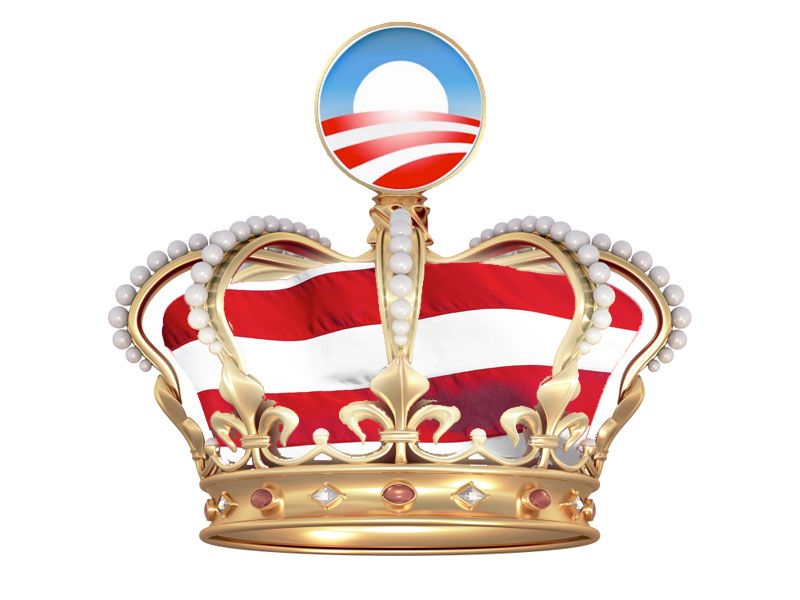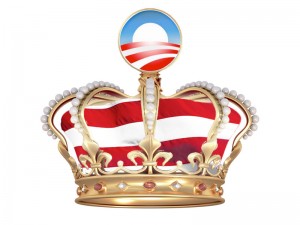
 For decades, dating back at least to the Nixon years, politicians and pundits from both parties have decried the “imperial presidency” that has become increasingly-powerful. When Richard Nixon admitted in an interview with former BBC reporter David Frost that, at least in his mind, “when the President does [something normally illegal], it is not illegal,” he implied that the president is the law. This overreaching sentiment hasn’t been limited only to President Nixon; many presidents since have assumed greater powers to the presidency than our founders ever intended him to have. This has made the American Presidency more powerful than the Founding Fathers envisioned, thus undermining the central theme of the US Constitution: that government power should never be concentrated in the hands of a few.
For decades, dating back at least to the Nixon years, politicians and pundits from both parties have decried the “imperial presidency” that has become increasingly-powerful. When Richard Nixon admitted in an interview with former BBC reporter David Frost that, at least in his mind, “when the President does [something normally illegal], it is not illegal,” he implied that the president is the law. This overreaching sentiment hasn’t been limited only to President Nixon; many presidents since have assumed greater powers to the presidency than our founders ever intended him to have. This has made the American Presidency more powerful than the Founding Fathers envisioned, thus undermining the central theme of the US Constitution: that government power should never be concentrated in the hands of a few.
The Framers of the Constitution clearly understood human nature, namely the human thirst for power, and decided that they would structure a government of checks and balances to prevent the abuses they had witnessed under Britain’s King George III. Fearing that a president would become an “elected monarch,” the Framers clearly gave the power to legislate, or make law, to the two chambers of the United States Congress. By their reasoning, with which I agree, putting the power to make law into the hands of a body made-up of many representatives was preferable to putting the power to issue an edict into the hands of the president. After watching King George III and his predecessors issue royal edicts, against the wishes of the people or the Parliament, they determined that an American president should never possess such power.
If the Founding Fathers came back to America today, however, they may not recognize the presidential institution they envisioned at the nation’s founding. The powerful, but limited, office of the president of the United States has become, for all intents and purposes, the “elected monarch” many of them warned against over two centuries ago. This tendency toward the imperial presidency certainly didn’t begin under Barack Obama, but it has been exacerbated by President Obama’s willingness to use executive orders to repeal, amend, and make laws without the consent of Congress. Such an assumption of legislative powers by any president is an affront to the clear language and intent of the Constitution. Action must be taken by the Congress to hold the executive accountable before it becomes an irrelevant institution.
I support SC Congressman Trey Gowdy’s ENFORCE Act as a necessary first step toward arresting this slide toward one-branch government. Congress doesn’t make suggestions, and they’re not in DC to provide mere “advice and consent” to the chief executive. Congress exists to represent the people of the United States in making law. When any president tries to alter, abolish, or institute any law without the consent of Congress, Congress should have the immediate legal authority to bring a constitutional challenge before the Supreme Court of the United States. Additionally, Congress should begin taking legislative steps toward limiting presidential powers with regard to the use of executive orders. This practice of issuing executive orders to government agencies has evolved from issuing directives on how to carry-out congressionally passed laws, to making laws without congress. For presidents of both parties, going forward, this practice must cease.
The Constitution clearly gives the American President a role in the legislative process. He or she can sign a bill into law, or veto that bill, but once a law is passed, the president has no power to amend or abolish it without the explicit action of the Congress of the United States of America. For any chief executive to assume more lawmaking power than this is to undermine the clear constraints of the Constitution, and to undermine the most fundamental structures of the American government. Such overreaches by the presidency, and presidents of both parties, can no longer be overlooked. Absent some immediate action by the Congress to restore proper constitutional boundaries, the republic as we know it will be permanently altered.
Benjamin Franklin was right in saying we have “a republic, if we can keep it.” It cannot be kept, however, so long as presidents act more like the kings we sought to separate ourselves from the very founding of this nation.




